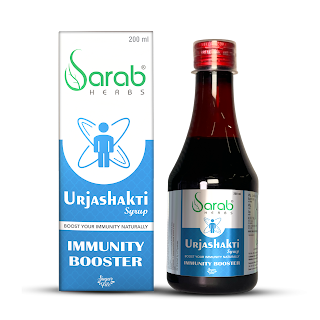The Ultimate Superfood: Unlocking the Health Benefits of Sunflower Seeds
- Sarab Herbs
- Mar 21
- 2 min read
Sunflower seeds are small but mighty when it comes to nutrition and health benefits. These edible seeds, derived from the sunflower plant (Helianthus annuus), are packed with essential nutrients, including healthy fats, vitamins, minerals, and antioxidants. Consumed worldwide as a snack or ingredient in various dishes, sunflower seeds have gained recognition for their numerous health advantages. In this article, we will explore the nutritional profile, health benefits, and ways to incorporate sunflower seeds into your diet.
Nutritional Profile of Sunflower Seeds
Sunflower seeds are a powerhouse of nutrition. A 100-gram serving of sunflower seeds provides:
Calories: 584 kcal
Protein: 20.8 g
Fat: 51.5 g (mostly healthy unsaturated fats)
Carbohydrates: 20 g
Fiber: 8.6 g
Vitamin E: 35.17 mg (more than 170% of the recommended daily intake)
Magnesium: 325 mg
Selenium: 53 mcg
Zinc: 5 mg
These seeds also contain phytochemicals, flavonoids, and polyphenols, which contribute to their health benefits.
Health Benefits of Sunflower Seeds
1. Rich in Antioxidants
Sunflower seeds are packed with antioxidants, particularly vitamin E and selenium, which help combat oxidative stress, reduce inflammation, and protect cells from damage caused by free radicals.
2. Heart Health Booster
The high content of unsaturated fats, including monounsaturated and polyunsaturated fatty acids, helps lower bad cholesterol (LDL) while increasing good cholesterol (HDL). This reduces the risk of heart disease, stroke, and hypertension.
3. Supports Brain Function
Sunflower seeds contain essential nutrients like vitamin B6, magnesium, and tryptophan, which play a vital role in cognitive function, mood regulation, and reducing stress and anxiety.
4. Promotes Healthy Skin
Thanks to their high vitamin E content, sunflower seeds help maintain youthful skin by protecting against UV damage, reducing inflammation, and promoting collagen production.
5. Enhances Immune System
The presence of selenium, zinc, and vitamin E makes sunflower seeds an immune-boosting superfood. These nutrients help in the production of white blood cells, improving the body’s ability to fight infections.
6. Supports Weight Management
Despite being energy-dense, sunflower seeds can support weight management due to their high fiber and protein content. These nutrients promote satiety and prevent overeating.
7. Regulates Blood Sugar Levels
The fiber and magnesium in sunflower seeds help regulate blood sugar levels by slowing down the absorption of glucose and improving insulin sensitivity.
8. Bone Health
With high levels of magnesium, phosphorus, and calcium, sunflower seeds contribute to strong bones and may help prevent osteoporosis.
How to Incorporate Sunflower Seeds into Your Diet
There are numerous ways to enjoy sunflower seeds:
Raw or Roasted: Eat them as a snack.
Salads: Sprinkle on salads for added crunch.
Smoothies: Blend them into smoothies for extra nutrients.
Baking: Use in muffins, cookies, and bread recipes.
Yogurt and Oatmeal: Add to breakfast meals.
Granola and Trail Mix: Combine with dried fruits and nuts.
Bottom Line
Sunflower seeds are a nutritional treasure with numerous health benefits, from boosting heart health to enhancing immunity and skin health. Incorporating them into your daily diet can contribute to overall well-being and disease prevention.
For high-quality sunflower seeds and other natural health products, trust SarabHerbs®, your partner in wellness and natural nutrition.











I struggled with infertility for several years, and it was one of the most difficult journeys of my life. I tried different treatments and medications, but nothing seemed to bring the results I hoped for. The emotional and physical toll was overwhelming, and at times I felt like giving up.Out of hope and curiosity, I decided to try the herbal treatment program from NaturePath Herbal Clinic. Honestly, I was skeptical in the beginning but within a few months of starting the program, I began to notice real changes in my health and overall well-being. My body felt more balanced, my energy levels improved, and I could tell that something was working differently this time.After completing the treatment, my dream finally…